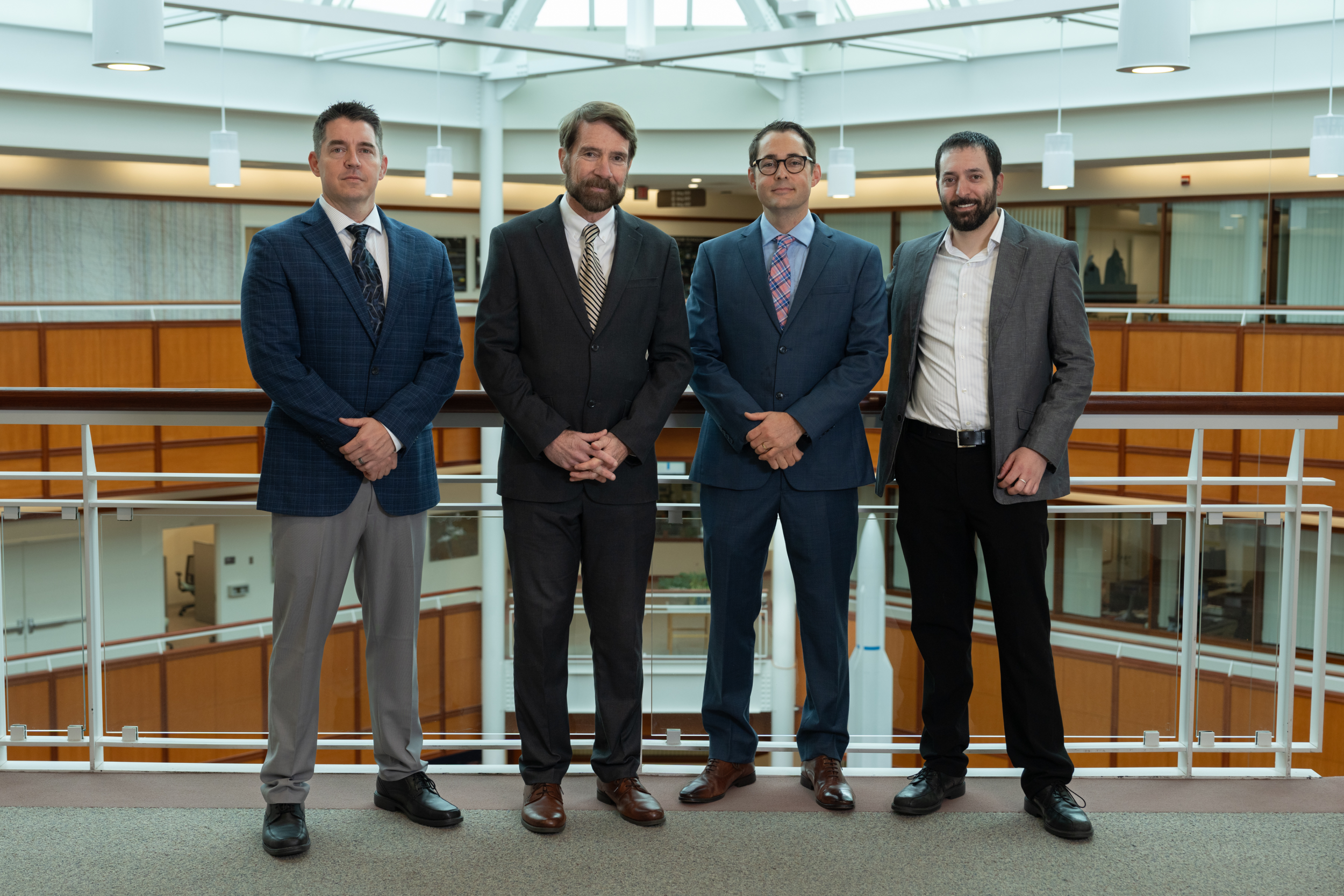Lincoln Laboratory kicks off collaboration with Air University, Air Command and Staff College

Lincoln Laboratory kicked off a new educational collaboration with Air Command and Staff College (ACSC) at Air University, the U.S. Air and Space Forces' center for professional education.
In the collaboration, students in the Joint All-Domain Strategist (JADS) graduate program — a program focused on improving skills in problem-solving and critical thinking as they relate to strategic operations — are embedded with project teams at the Laboratory to educate and expose the students to the technical work across the Laboratory's various divisions.
The students are up-and-coming leaders who will hold key command and staff positions in the future. The experience they gain will allow them to form a support network at the Laboratory and understand what is possible to help address technical challenges they may encounter when they enter leadership positions.
The collaboration will have new graduate students every academic year. This first year of the program runs from September 2023 to May 2024 and has placed 20 students. This unique collaboration will have great benefit for both the U.S. Air Force and the Laboratory.
"This program codifies the strategic importance the Laboratory sees in educating our services' future leaders," says Daniel Strassler, who is heading the collaboration and is a technical leader in the Artificial Intelligence Software Architectures and Algorithms Group. "By exposing the students to the art of the possible, when they rotate into their future roles, they'll know what is available and that they can reach back to the Laboratory when faced with a problem."
Earlier this academic year, leaders from ACSC at Air University visited to the Laboratory to learn more about the programs their students would be contributing to. One of the main focuses for the day was the Laboratory's joint all-domain command and control programs, as well as technology for countering malign foreign influence operations.
"As an acquisition officer, the collaboration with the Laboratory has shown me the benefits of federally funded research and development centers and the enterprise-wide requirements to transition technology quickly to the user," says Maj. Augustine Tran, U.S. Air Force, who participated in the pilot program last year.
"The Laboratory has also shown that addressing complex problems takes a bite-sized approach and highly innovative solutions developed by experts in their field. An enduring collaboration with the Laboratory and the Air Command and Staff College will promote the development of technologies and also garner advocacy within the service branches as technology begins to transition," Tran says.
Maj. Garrett Peirce, U.S. Marine Corps, adds that the program is helping to expand his knowledge regarding the possibilities of technology. "Combining operational experience with the technological expertise of the personnel at the Laboratory offered a substantial synergy to both organizations. Apart from the tangible scientific benefits, the personal connections have been invaluable, and I foresee the relationships continuing to pay dividends."
"The establishment of this collaboration was a combined effort from many interested individuals within the Laboratory and the Air University; I just got the privilege of leading it on the Laboratory side," says Strassler. "Growing up in a family focused on education turned it into a passion, and now having the opportunity to combine that passion with another, national security, I am extremely excited to see the collaboration take flight. With operational knowledge shared by the students and technology knowledge flowing the other way from the technical staff, we've seen a huge benefit for everyone involved. I'm looking forward to seeing this program grow to include other service branch universities with the Air University collaboration having led the way."
Inquiries: contact Kylie Foy.